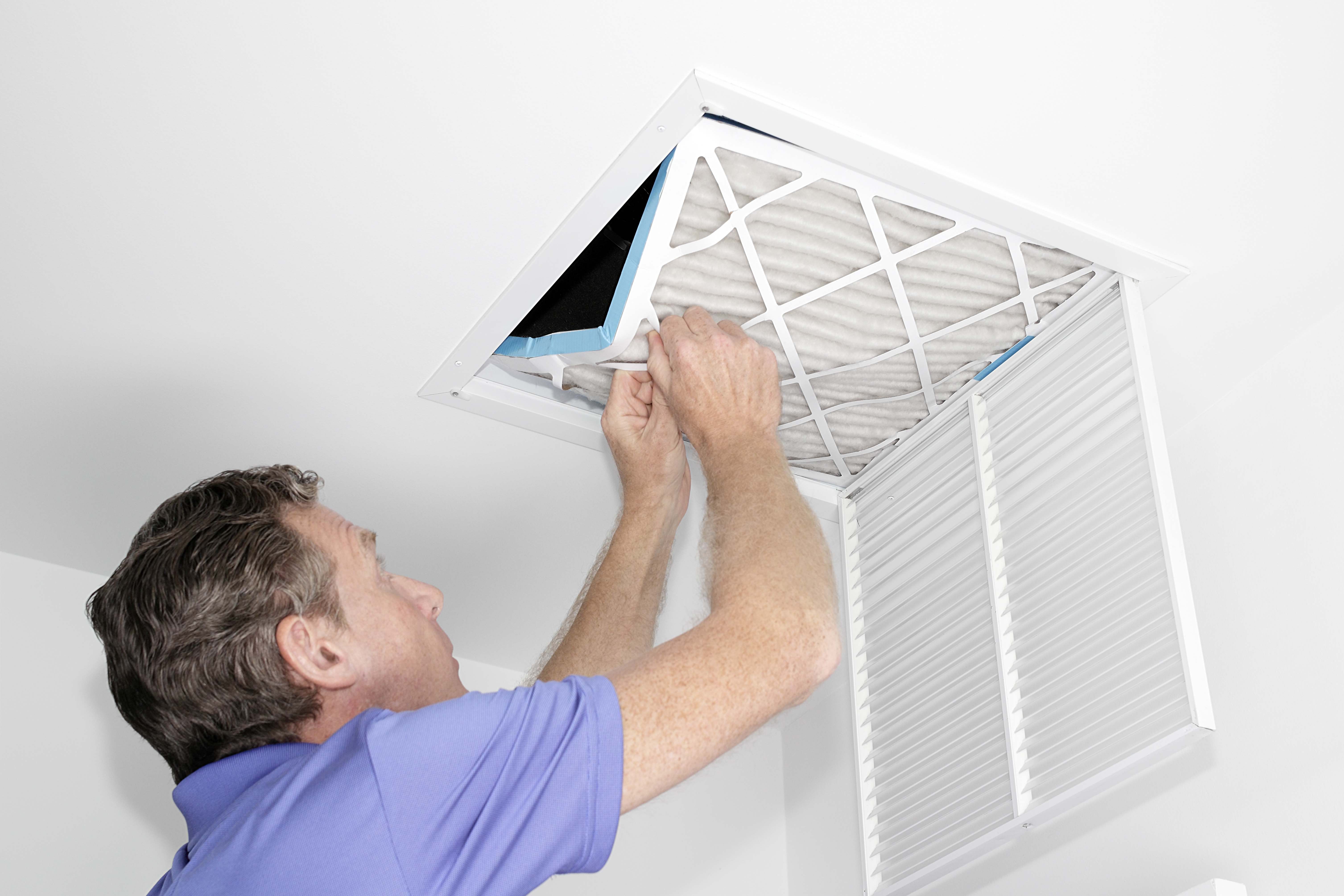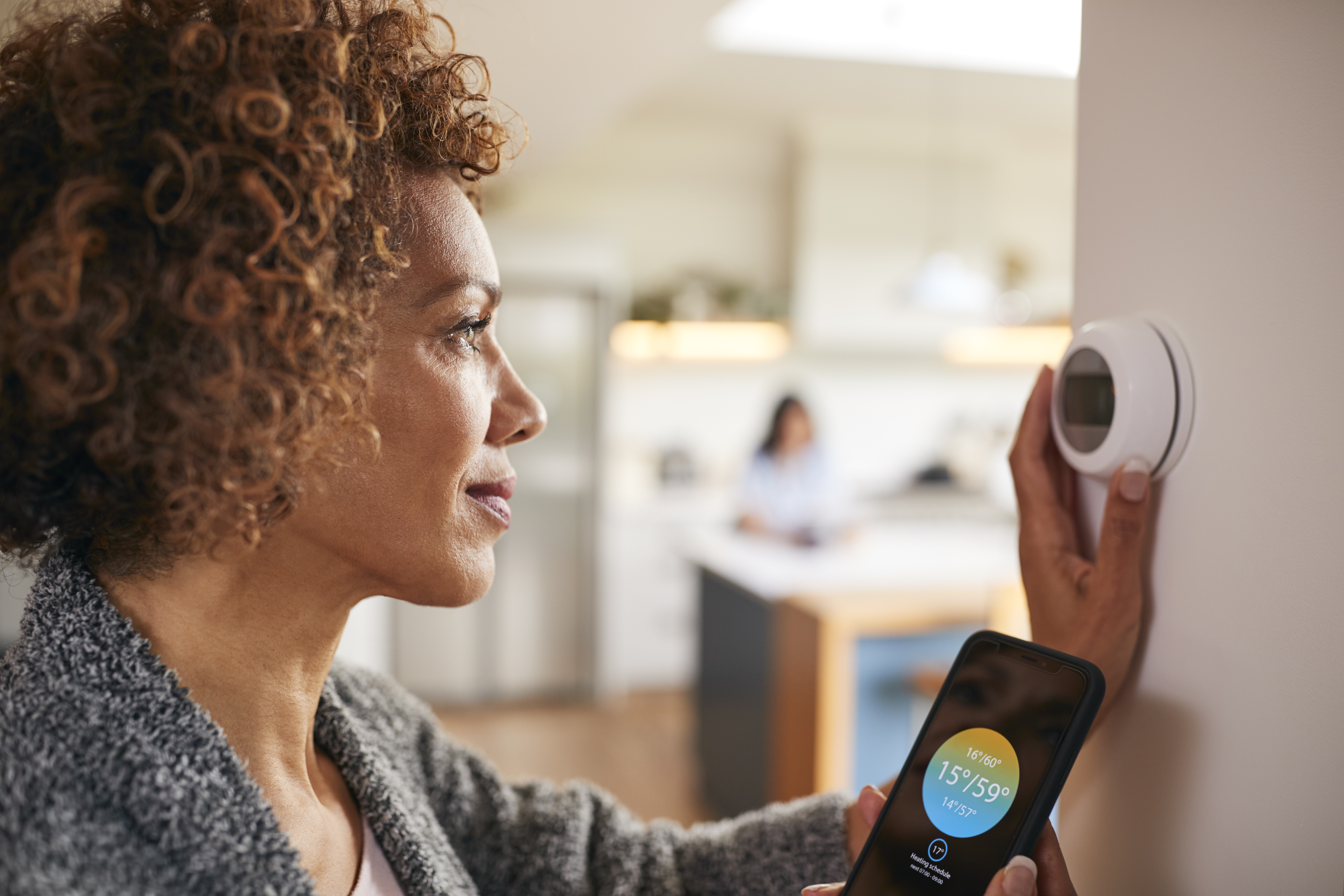When you think about a "healthy home," a few cleaning tasks probably come to mind — disinfecting countertops, tackling bathroom mildew, and shampooing carpets and upholstery, to name a few. But what about your home's energy efficiency?
If your home is energy efficient, it means that you're not wasting too much energy. That can keep your power bills low, but it can also have an effect on your home's overall health. A lot of energy efficiency comes from your heating, ventilation, and air conditioning (HVAC) system. If your HVAC system is clean and running well, it means your indoor air quality is probably better, too. Poor indoor air quality (IAQ) can harm your mental and physical health, so it's important to take care of your HVAC system.
If HVAC and energy efficiency weren’t on your healthy home to-do list, don’t worry. We have your roadmap for adding both factors to your healthy home regimen.
Ways to improve your home's energy efficiency
Improving your energy efficiency can benefit both your wallet and your indoor air quality. After taking these steps, you'll be able to breath easy about the cleanliness and health of your home.
Start with a home energy audit to gauge your current energy efficiency
Before you do anything else, take some time to learn how your home is operating now. This will help you understand not just how your home works, but how to make it work better. The U.S. Department of Energy recommends having a certified professional energy assessor conduct special tests to identify air leaks, insulation issues, moisture damage, foundation problems, and other issues that might be costing you energy and money. The Residential Energy Services Network or your local utility company can help you find a professional in your area.
Optimize your HVAC system
As much as 55% of your home’s energy consumption goes to HVAC. A home energy audit will help identify air leakage, clogged or dirty filters, and challenges with air distribution — all telltale signs that your system is running inefficiently. Making the right updates will help you save money on your utility bills. It will also help your system take more contaminants out of your indoor air.
That said, a one-time energy audit or system cleaning isn’t enough to maintain the health of your home. To keep your HVAC system running at its peak all year long, you should:
- Replace furnace filters when needed. Remember: that might be more frequently than the manufacturer recommends. Heavy loads of allergens, pet dander, and other household dust could dirty your filters quickly.
- Vacuum and/or wipe down all floor and wall registers as part of your normal cleaning routine.
- Schedule annual system tune-ups with a local HVAC company.
Address insulation & air leaks
Over time, many homes can develop gaps and cracks around the foundation, windows, and doors and lose insulation volume, usually in the attic. A well-insulated, tightly sealed home is essential for energy efficiency, so be sure to address these issues promptly. Seal foundation gaps and cracks with expanding spray foam insulation, use weatherstripping and caulking around windows and doors, and add insulation where needed. You can also hire a pro for this.
Air sealing also helps prevents pollutants like allergens, smoke, and exhaust from entering your home. That means your tuned-up HVAC system will be able to effectively clean your indoor air without the threat of added contaminants.
Embrace smart technologies
Home energy assessors have many high-tech tools in their arsenal, but energy-saving home technology is accessible for homeowners, too. Start with smart thermostats to help lower your overall HVAC use by programming your furnace to 68 degrees F in the winter and your AC to about 78 degrees F in the summer. Look for smart thermostats with IAQ sensors, too. In addition to temperature control, these devices can activate ventilation and filtration based on contamination detected in the air.
Specialty sensors can help throughout the house, as well. Ventilation fans with motion or humidity sensors turn on bathroom exhaust fans automatically to remove moisture and odors and keep air from stagnating.
Take the next step to better energy efficiency with whole-home energy solutions
The four steps above can benefit your home’s energy efficiency and indoor air quality. But bigger changes can make an even bigger difference.
If your home has humidity issues, it might be time to install a whole-house energy recovery ventilator (ERV). High-humidity environments can promote mold and mildew growth, leading to health concerns. Humidity that’s too low can cause itchy eyes and skin, break down building materials, and spread viruses. A whole-house ERV helps balance the humidity in your home to improve both home comfort and IAQ.
For energy efficiency, solar panels present a growing opportunity. By offsetting electricity consumption (and even generating surplus power under the right conditions), this clean, renewable energy helps your home run more efficiently and reduces your carbon footprint in the process.
Start moving toward a healthier home today
Energy efficiency is a great indicator of how healthy your home is, especially when it comes to your HVAC system. Start with a home energy audit to learn the basics of how your home functions, as well as the intricacies of making it work better from top to bottom. Add in smart home technologies and whole-house energy tools, and you’re on your way to having your home run cleaner and more efficiently.
Panasonic has a variety of products and services available to help you achieve the healthy home you’re hoping for. If you're ready to make a change, check out Panasonic's healthy home solutions.





